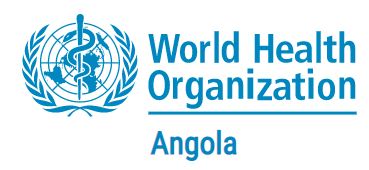Angola takes a decisive step towards ensuring safer, more effective, and more accessible medicines and health technologies
Between June 3 and 5, the Angola Medicines and Health Technologies Regulatory Agency (ARMED), with technical support from World Health Organization (WHO) and funding from the European Union (EU), held a strategic meeting to monitor progress in implementing the recommendations made as part of the assessment of its regulatory maturity.
The session was attended by 25 ARMED professionals and resulted in the drafting of the Institutional Development Plan (IDP), the aim of which is to strengthen the national regulatory system, bringing it into line with international standards, in a context in which the pharmaceutical sector is becoming increasingly attractive for investment.
According to WHO Representative in Angola, Dr. Indrajit Hazarika, supervision is an essential pillar of the pharmaceutical sector, encompassing a complex network of production, distribution, and marketing medicines.
Dr. Hazarika stressed that “medicines and medical products are fundamental for access to health care, and it is essential to guarantee their quality so that the goal of health for all can be achieved”.
This meeting is part of WHO’s ongoing support to the Angolan government in strengthening the regulatory system. WHO experts from the Geneva headquarters and the Africa regional and national offices analyzed the Angolan regulatory system based on WHO Quality Management System principles and the international benchmarking tool – the Global Benchmarking Tool (GBT).
During the meeting, the progress made in implementing the technical recommendations was assessed, and a review was also made of the actions taken following the 2022 and February 2024 self-assessment exercises. The Institutional Development Plan (IDP) was updated in this context, a strategic document that will guide ARMED until 2027.
The aim is to reach Maturity Level 3, internationally recognized as the benchmark for a functional regulatory system, capable of guaranteeing the availability of safe, effective, and quality medicines on the national market.
Despite the progress already made, the pace of implementation needs to be accelerated. Holding regular meetings to follow up on the IDP is key to monitoring progress, identifying obstacles, adjusting strategies, and ensuring continued alignment with international standards.
In addition, these meetings also strengthen institutional commitment, promote transparency, and facilitate coordination between technical and financial partners.
ARMED’s Director General, Dr. Pombal Mayembe, stressed the importance of the initiative. “At the World Health Assembly, there was extensive discussion about the local production of medicines. Angola cannot be left out of this movement. We want to reach level 3 of maturity by 2027. Is that possible? Yes, with the support of WHO, EU, and other partners, we are firmly committed to achieving this goal.”
For his part, Pierre Destexhe, representing the European Union, highlighted ARMED’s role in controlling the quality of the national medicines market, as well as its contribution to ensuring that access to safe, quality medicines becomes an ever greater reality in Angola, within the scope of Universal Health Coverage.
The meeting, which made it possible to assess progress and draw up ARMED’s IDP, represents a decisive step towards consolidating a robust regulatory system in Angola, reaffirming the government’s commitment to guaranteeing the population’s access to safe, quality medicines, while at the same time promoting local production based on international standards.
Distributed by APO Group on behalf of World Health Organization (WHO) – Angola.


